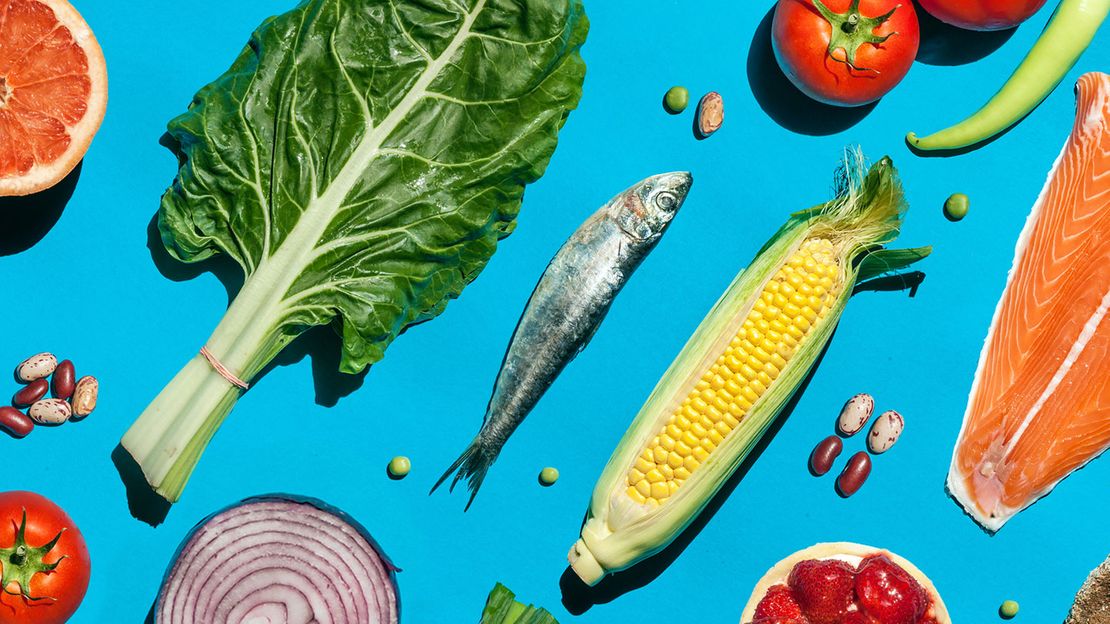Do you want to lose weight or eat better? Many diets vie for your attention. And, in reality, most diets, good or bad, will help you lose weight quickly. The key is to stick to a plan that you can follow for the rest of your life. Unless medically advised, diets that eliminate entire food groups (sorry, keto) or impose strict dietary rules (sorry, Whole30) are out.

We talked to a few registered dietitians about which diets they wanted to keep and which they wanted to lose.
The 4 Best Diets for 2021
Dieta Mediterranea
Dietitians like Amy Gorin, RDN, owner of Amy Gorin Nutrition in New York City, agree with the ranking by US News & World Report. Gorin praises the Mediterranean diet for being a balanced diet that includes whole vegetables, fresh fruit, whole grains, fatty fish, olive oil, nuts, legumes, red wine, and dairy. This is because the Mediterranean diet emphasizes whole, plant-based foods over highly processed junk foods or fast foods. “Eating more fiber, protein, and less saturated fat and sugar will help you burn more calories and lose weight,” says Amy Goodson, RD, of Dallas-Fort Worth.
Beyond weight loss, eating like Italians, Greeks, and other Mediterranean-dwellers has health benefits. Gorin says this approach benefits the heart and brain. For example, a previous Metabolic Syndrome and Related Disorders review suggested that a Mediterranean diet, especially when combined with exercise and followed for six months, was associated with reduced weight gain. The review included 16 randomized controlled trials with 1,848 Mediterranean diet followers and 1,588 control subjects.
Lose weight and get fitter? Win-win!
WW (Formerly Weight Watchers)
Weight Watchers is the old name for this popular weight loss plan. According to an explanation on the WW website, the company rebranded in 2018 to emphasize wellness over weight loss. “This program is one of the most effective weight loss programs out there, promoting long-lasting, sustainable changes,” says Gorin, who previously wrote for WW’s The Eat List nutrition blog. Gorin says the new WW offers tangible rewards like fitness class passes and travel shoe bags to encourage members to lose weight. US News ranked WW as the best diet for weight loss this year, she adds.
The ZeroPoint foods are one caution, says Goodson. The foods that count as zero points vary depending on your color level (green, blue, or purple). Fruits and nonstarchy vegetables are zero points for everyone, which is great because they help you feel fuller between meals and snacks (and are tasty, too). On Purple, however, this includes bananas, eggs, beans, legumes, whole-wheat pasta (and more), which worries Goodson. Eggs have 70 calories and bananas 100. But I like both foods. By consuming these foods, one should not believe they haven’t eaten anything. « Portion control is still required.
Veggie Diet
It’s hard to call a vegetarian diet a “fad” when there are so many reasons to go vegetarian, including environmental and ethical concerns.
The Journal of General Internal Medicine published a review of 12 randomized controlled trials representing approximately 1,150 people in January 2016. According to the Mayo Clinic, a vegetarian diet can help you lose weight if you eat smaller portions of foods that are lower in calories and fat but higher in fiber and plant-based protein.
Another benefit of a vegetarian diet is improved health, and this is backed by research. “A vegetarian diet is a wonderful diet,” says Jeanne Tiberio, a registered dietitian in Salem, Massachusetts. A vegetarian diet was linked to a 25% lower risk of heart disease and an 8% lower risk of cancer in a meta-analysis published in Critical Reviews in Food Science and Nutrition in November 2017.
If you have a history of eating disorders, avoid this approach (and any other restrictive plan, for that matter). The Journal of the Academy of Nutrition and Dietetics noted that some people use a vegetarian diet to justify food restrictions. Going vegan has many advantages, but before making the switch, consider your motivations.
The Flexitarian Diet
A flexitarian diet allows you to include small amounts of meat, poultry, or fish for extra protein and satisfaction. This flexible approach may be ideal for those seeking a balanced calorie burn. “I enjoy thinking about a plant-based diet. Few Americans eat the recommended amount of fruits and vegetables. Consuming more plant-based foods, high-fiber whole grains, lean proteins and dairy will help you meet your daily fruit and veggie requirements, says Goodson.
Reducing but not eliminating meat consumption is generally beneficial. For example, a 2016 Frontiers in Nutrition review of 25 studies found that semi-vegetarian diets were linked to weight loss, lower blood pressure, and a lower risk of type 2 diabetes. The authors concluded that while it is popular among women, it may also benefit men, especially since men eat more meat.
1 Diet in the Middle: IF (Intermittent Fasting)
Intermittent fasting (IF) is becoming more popular as a way to lose weight quickly, according to Goodson. It involves prolonged fasting, and there are several methods.
On the other hand, some people set a specific eating window or fast for two days a week (called 5:2). (like 16 hours fasting, 8 hours feeding). Others may plan a day without eating, says Goodson.
While the research is still in its infancy, the Harvard T.H. Chan School of Public Health reports that it may help people lose weight in the short term. But this approach isn’t for everyone, so it’s a compromise.
To know if it works for you, you must first understand your needs and schedule. “The eating style is very restrictive and could lead to overeating or binge eating,” says Gorin. Goodson is also concerned about athletes who train early. It’s counterproductive to muscle recovery to work out early in the morning and then not eat for several hours. However, Goodson may recommend it if you are overweight and at risk for diabetes. Ask your doctor if IF is safe for you if you have diabetes and take insulin.

